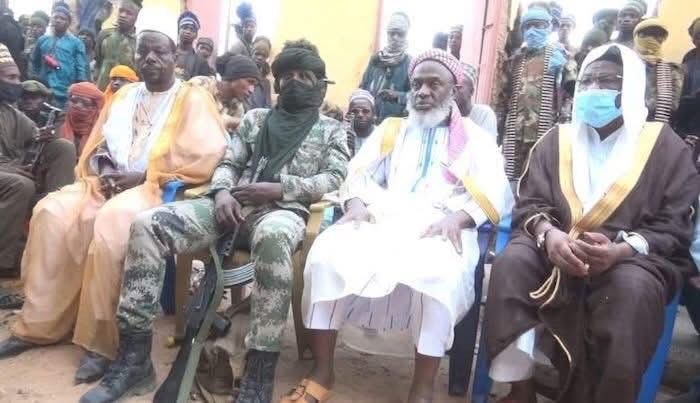By Anamati Inyang- November 5, 2025
A prominent Islamic scholar has reignited a national debate over how to treat members of extremist groups who surrender by urging mercy and rehabilitation instead of retribution.
Sheikh Ahmad Gumi asked a blunt question in a recent statement. If they repent what do you want to do kill them He referenced a Christian teaching saying Jesus told a woman who lived a sinful life to go and sin no more to illustrate his point.
Gumi has been involved in back channel talks with armed actors in the North and his comments arrive against a backdrop of deep pain caused by years of attacks kidnappings and mass displacement in the North East and neighbouring areas. The debate over whether repentant fighters should be offered amnesty rehabilitation or prosecuted remains sharp and emotional.
Supporters of Gumi say that carefully managed reintegration programmes that include vetting deradicalisation counselling education and livelihood support could reduce violence by removing incentives to return to arms. They point to examples from other countries where former fighters were steered back into society when communities and government provided structured support.
But many victims families and security experts reacted angrily to the cleric s remarks. Forgiveness must not mean impunity one survivor said. Critics warn that leniency without strict safeguards could allow recidivism and weaken respect for the law.
Security analysts say any policy for repentant militants must be clear and transparent. Questions that need answers include who qualifies for leniency what vetting is required what penalties apply for serious crimes and how monitoring and rehabilitation will be enforced. They add that a credible approach must combine elements of accountability and restorative justice while protecting victims rights.
Past government efforts at conditional surrender have produced mixed results. Experts say a successful programme would require cooperation between security agencies religious leaders community representatives psychologists and civil society plus steady funding and protection for witnesses and victims.
Sheikh Gumi s intervention has highlighted the moral and practical tensions in the national conversation on violent extremism. Nigerians remain divided on the balance between justice and mercy and on what mix of measures will bring lasting peace to communities that have suffered most.









